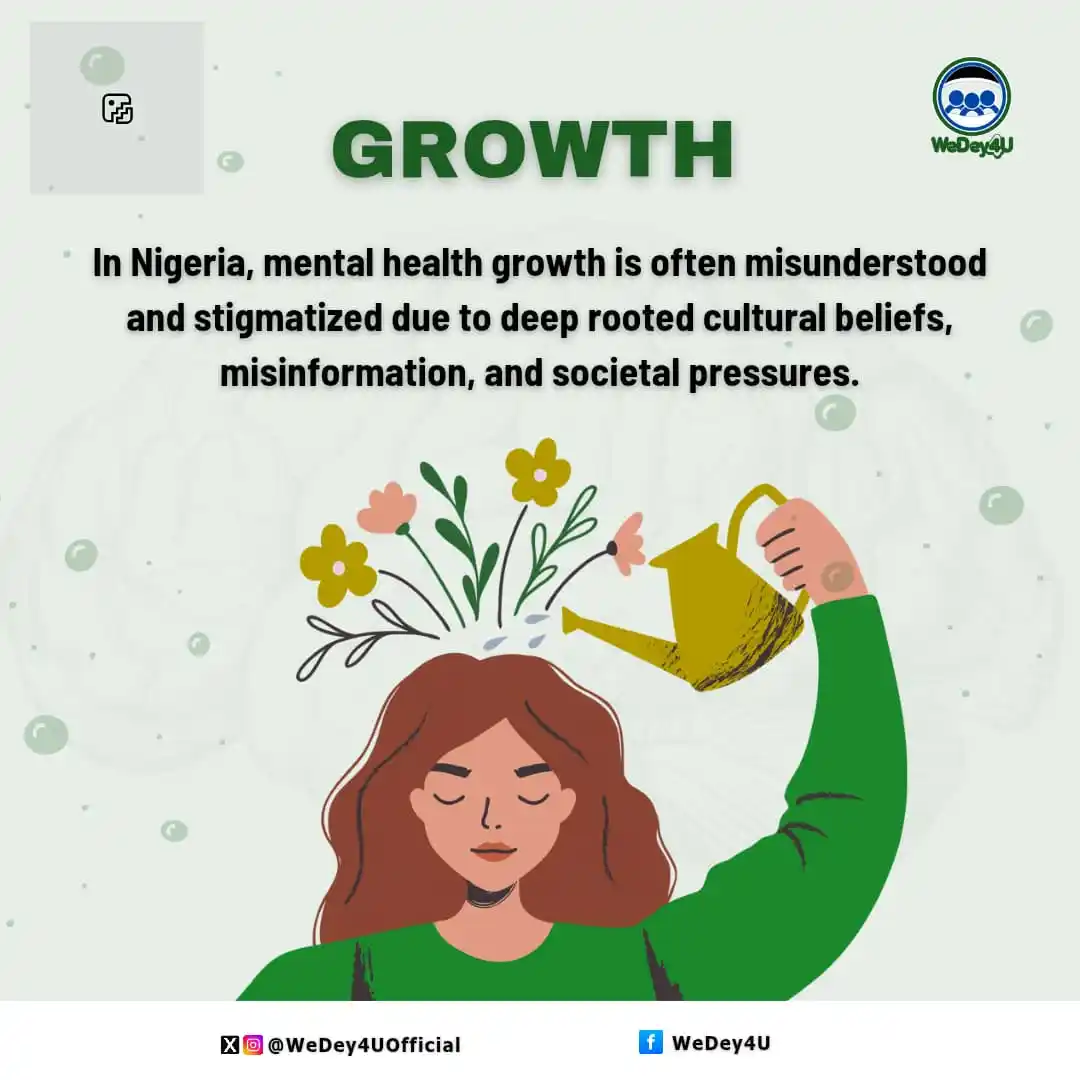
WeDey4U 💚
May 21, 2025 at 09:17 PM
In Nigeria, mental health growth is often misunderstood and stigmatized due to deep rooted cultural beliefs, misinformation, and societal pressures. Some of the common stigmas associated with mental health growth include:
1. Seeking therapy or talking about emotional struggles is often equated with being mentally unstable or spiritually cursed. People are afraid to be labelled as "mad."
2. Many believe mental health issues should only be addressed through spiritual means like prayers, fasting, or deliverance, making therapy or counselling seem unnecessary or even sinful.
3. There is a cultural expectation to endure hardship silently. Admitting emotional struggles is seen as weakness or a lack of resilience.
4. Many people avoid seeking support because they fear being gossiped about or judged by family, friends, or community members.
5. Mental wellness is sometimes viewed as a luxury or a “foreign concept” that doesn’t apply to local realities, especially in rural areas.
6. There is skepticism about psychologists, therapists, or counselors, partly because of low awareness and a lack of accessible, credible services.
7. Men are expected to be stoic and emotionally invulnerable, while women are sometimes told their emotional issues are due to hormones, weakness, or disobedience.
Impact of These Stigmas:
1. People suffer in silence.
2. Conditions worsen without early intervention.
3. Mental health growth is hindered, and healing is delayed.
Breaking the Stigma:
1. Education and advocacy.
2. Community-based conversations that normalize emotional well being.
3. Inclusive mental health that respects cultural and spiritual values.
WeDey4U 💚
